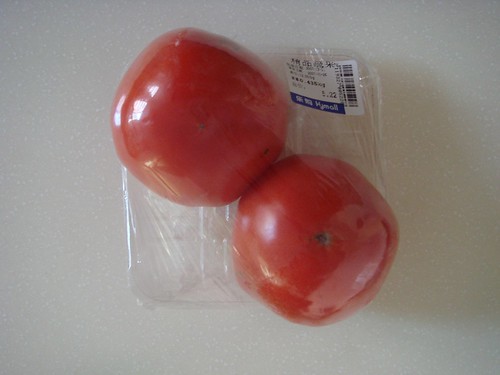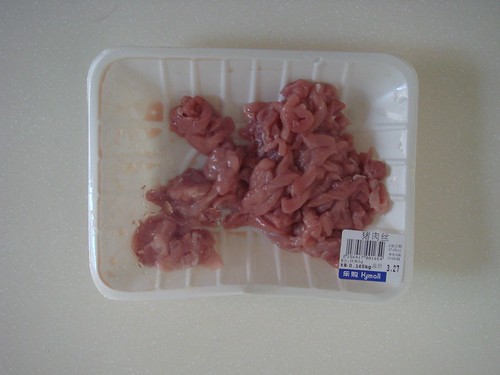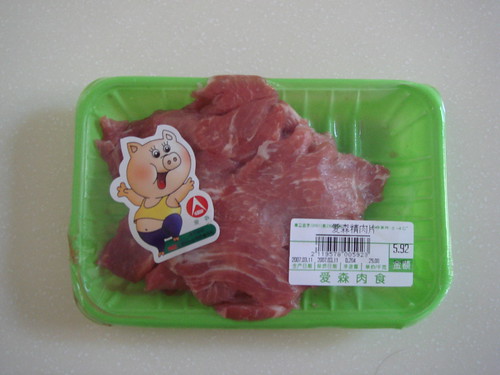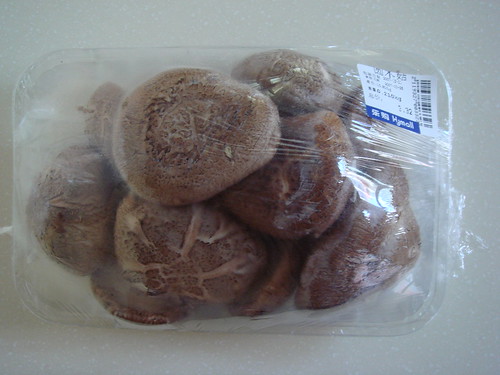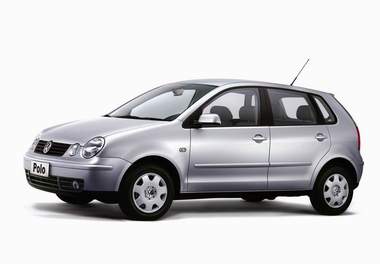This is the third report on living cost in Shanghai, following the previous two (I, II). The data is updated according my personal experience in Jan 2007. The data is pretty like the city in my eyes. Please be aware, different people may have different impression of the same good (depending on when to buy it and where to buy it). It is intended to give overall guideline to living cost in Shanghai.
Please note: 1 USD = 7.75 RMB as this article is written.
Transportation
This is easiest one.
Bus:
most buses is one price for all route: 2 RMB. Some specially and urban buses are higher (4 RMB) and some non-air-conditioned bus are 1 RMB, but pretty rare now.
Metro:
Lowest price (one stop) is 3 RMB, and the longest stations are 6 RMB. Typically transportation via Metro is 4 RMB.
Taxi:
11 RMB for the first 3 km, and 2.1 RMB for each additional kilometer.
Ferry:
Ferry is not often used, and it costs 2 RMB (with air-condition), and some are cheaper than 1 RMB.
Drinks
Coke:
A can of Coco-Cola is 1.2 RMB in super market, but it is at least 5 RMB if you order the same thing in a restaurant.
Purified Water:
A bottle of purified water (500 ml) is around 1.5 RMB.
Beer:
A bottle of beer (600ml) is typically 4 RMB (for example, Tsingtao Beer). Foreign beers are a little bit more expensive.
Food
Grocery is much cheaper than going to restaurant (it is the same everywhere in the world).
I don’t want to give price of every fruit, or meat. Just give you some idea, 10 RMB raw material for a meal for two persons is good enough (at least for persons like me).
Meal at restaurants varies greatly. Here are some example:
Dumpling in small dumpling shop is 2.2 RMB per 50g (I used the shop of Xiaohui at the gate of Jiaotong University). 4.4 RMB is good enough for really nice dumpling or Xiaolongbao.
Shanghai-style Noodles at street shops is between 3 – 5 RMB (if you visit residential areas), or 10 – 12 RMB in tourism area (like most places visitors go, People’s Square, bund…). The food is the same, and the difference is just the rental price of the venue.
Above are the traditional food shops you find on small streets.
For modern food shops, like those in big shopping malls, a meal cost 20 – 30 RMB.
40 RMB per meal per person is called “average”, and there are some better places with 100 RMB per meal per person. (How much better is “better” varies from person to person).
The next level of restaurants are those with fantastic views, like the top of the Jin mao Tower, the Huangpu River scene restaurants. They typically have minimum fee of 300 RMB per person.
For western food, most decent restaurants (run by expats) charges lower price than San Francisco, or New York, but is still way to expensive. Don’t be surprised if you get a bill of 500 – 700 RMB per person in restaurants in Three on the Bund. (Last time, my friend from San Francisco told me her feeling: it is not cheap, but it definitely worthwhile for the view and environment).
House Rental
Flat sharing (three or more person share the same residential apartment) is typically 500 RMB per person per month. This is the cheapest place I can think of. There are lots of this apartments in my residential area.
For a standalone apartment near Metro, I believe 1000 RMB is the minimum price you need to pay. However, be prepared that it may be the terminal station of Metro #1, or #2, which is very far from city.
1000 – 2000 RMB is the most typical price for an one-living room, one bed room apartment. 2000 – 3000 RMB for two bed room apartment. Be prepared that these apartments are not in downtown, and maybe in an unfamiliar residential area that could not be found in any tourism guide.
If you want to live in downtown – I highly recommend you to do that to fully experience the beauty of Shanghai, be prepared to pay more.
For example, in Xujiahui area, 3000 RMB is the minimum price I can find. It is for an apartment with one bed room and one living room (or only two bed room), like 60 sq. meters. Also, be warned that apartments with this price must be a pretty old one, with smell, and dirt…
All the apartments described above come with kitchen, bathroom.
The next level are much better. It is like 3000 – 8000 RMB. These are not bigger, just nicer – in newly built residential area (built in the last 10 years), and with very nice garden view, and environment.
I also know some expats who spend like 5000 USD to 10000 USD for a historical villa in downtown every month. It is out of the scope of this article.
Water and Electricity
Water is very cheap, compared to the items listed above.
Water is like 100 RMB per 1000 kg. Just to give you some idea, I paid like 30 RMB for water for two persons who take shower almost everyday.
Electricity for a household is typically 200 RMB (for household like me).
All rent prices do not include water, and electricity.
Telephone and Internet
Telephone is 0.12 RMB per minute, and domestic long distance varies depending on your comm. plan. It is less than 1 RMB per minute.
Internet fee (for example, ADSL) is 100 RMB for the whole month. You can buy higher speed with more money.
Others
Here are some items I can think of:
A middle-sized Mocha in Starbucks: 22 RMB
Ice cream: 2 RMB (Haggen-dazz is like 30 RMB)
A typical McDonald meal: 15 RMB (the cheaper package)
Salary: 1400 RMB per month is the city’s average. 3000 RMB is treated fair for university graduates. 10,000 RMB is regarded as high salary for employees.
Anything else that I missed?
You can come to the newly established BBS to discuss more about how to live in Shanghai.
Update September 18, 2007
This is a minor update of this Living Cost in Shanghai (2007 Edition). Since it is September, and especially after the increase of price of many goods (the Consumer Price Index increased by almost 6% in August), the price needs some updates. I have a reader who are so kind to list all things he wants to know, so let me update it according to these items:
Car Fuel:
I am using 100 RMB per week (30 km on weekday and 10 km on weekend)
Car expenses: Insurance, taxes,
.
Groceries: We love to cook, we would cook almost everyday at home.
If you cook at home, the cost should be pretty low compared to dining outside. I have a groceries cost list here. The price is recorded this March, and please add about 10% increase for current situation.
Entertainment (bars, ice cream, cinemas,
)
Bar is expensive here. Budget 100 RMB for a bottle of beer for one person or 200 RMB for two. If you really want to drink a lot, there is no limitation. Typical movie ticket is 60 RMB. Ice cream is pretty cheap – I mean the normal Icecream, 2 – 4 RMB, but if you love HaggenDaze or Iceason, it is 30 – 40 RMB per person
Internet: Unlimited broadband high speed access
This is easy: 1400 RMB per year
Water, Electricity, phone line with international calls
300 RMB for water (for normal use), 300 RMB for electricity, 100 RMB for gas, and phone line monthly now is typically included in the broadband Internet access (the 1400 RMB package), and international call is 4 – 6 RMB per minutes, but you can always find Skype which is almost free to make phone call.
Cell phone plan: average plan
Budget for 100 RMB for normal use, or 300 RMB for intensive usage
Transportation: Occasional buses, taxis, metros
Bus is cheap – 2 RMB per ride. Metro is 4-5 RMB per ride, and taxi is more expensive. Common taxi ride is 20 RMB
Health: 2 private insurance plans, everything covered
3000 RMB is typical insurance plans for one person.
Chinese lessons
Budget 60-100 RMB per hour for one person. Typical class is like 1000 RMB per person
OK. I am happy I finished all the questions. However, please do remember that it is not easy to answer general questions like this. Everything really depends on how much you use it, how good is your standard of good. So I didn’t bother to check any exact price of anything (for exact price, check my other entries under Living Cost category.) My suggest just give you a range, or impression about how expensive it is. So you understand at least “is it expensive or cheap”, or “is it in 10s range, or 100s range, or 1000s RMB range. Above all, life in Shanghai is an adventure, and you may not be able to plan for everything. People in Shanghai don’t like planning.

